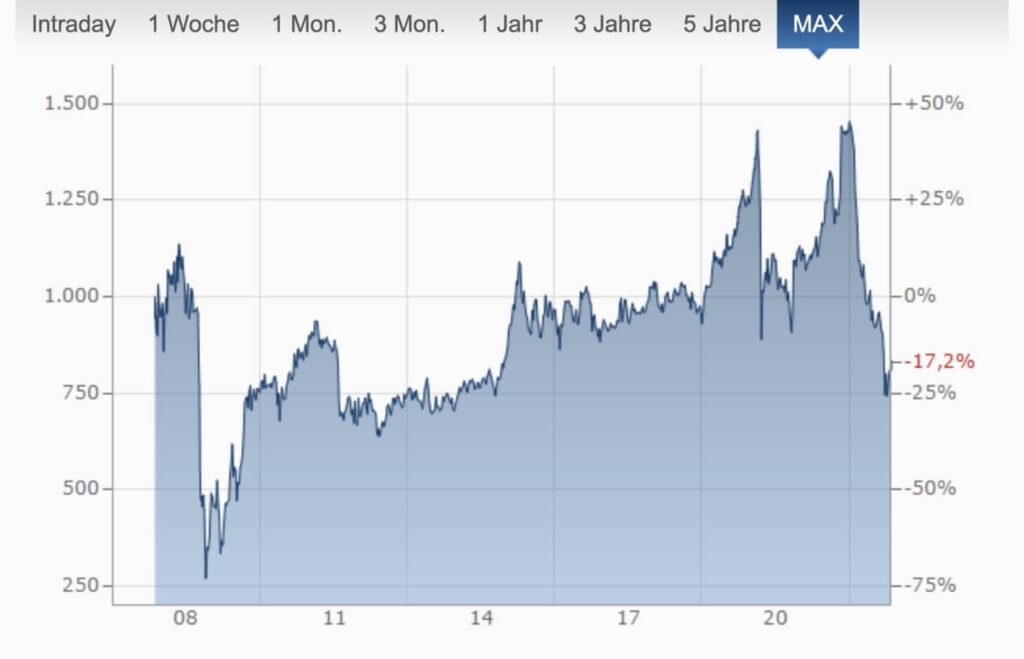Are There REITs in Germany?
Key Takeaways
- REITs (Real Estate Investment Trusts) are very common in the US, but they also exist in Germany
- REITs are real estate companies that pool funds from investors in order to create real estate portfolios
- Because German REIT law severely limits REITs, they have many benefits & downsides for investors
- Should you invest in German REITs? It depends on your personal financial strategy and your investment goals
What Is A REIT (Real Estate Investment Trust)?
Would you like to invest in real estate (in Germany) without spending tens of thousands of Euros on a downpayment, taxes, and fees (e.g. notary or real estate agent)? Then real estate ETFs, open or closed real estate mutual funds, or REITs (short for Real Estate Investment Trust) might be a good option for you to become a real estate investor far easier and more affordable than buying a property yourself.
As REITs seem to interest many people from our community the most, let us take a closer look at German REITs in this GermanReal.Estate FAQ. On the most fundamental level, REITs are real estate companies that pool money from investors (like real estate crowdfunding) in order to invest in a portfolio of different properties. So if you do not have enough money to buy your own shopping mall or multi-family home (yet 😉), REITs can be a great alternative to invest in properties you otherwise wouldn’t have the money for.
REITs are a lot more common in the United States than they are here in Germany or Europe, but they do exist. As of writing this article, there are 5 different German REITs available to invest in. Germany doesn’t have a lot of REITs because they are as regulated by financial laws as anything can be. That sparks the question if you should invest in German REITs or not.
Rules For REITs In Germany
In order for a real estate company to be considered a REIT, it needs to apply all rules listed below. Some rules might be more important for the REIT company than for you as a potential investor, you just need to know that a REIT can also lose its REIT status if it does not comply with all the rules of the German REIT law (“Gesetz über deutsche Immobilien-Aktiengesellschaften mit börsennotierten Anteilen“):
REITs in Germany are limited in the types of properties they can invest in. While REITs can invest in commercial properties, infrastructure, plots, etc depending on their strategy, they cannot invest in residential properties built after 2007. The German REIT law prevents REITs to invest in newer residential properties because rents would rise even higher than today (apparently).
A minimum of 75% of the earnings & of the assets of a German REIT must come/be from real estate and real estate only. Real estate-related activities (e.g. doing construction) are not allowed for REITs in Germany. The only real estate-related activity allowed is for Mortgage REITs to earn interest from giving out mortgages.
German REITs are not allowed to trade properties. The German REIT law demands that REITs focus on passive real estate management only. Only small changes to the property portfolio are allowed: REITs can shift 50% of their portfolio every 5 years or 100% of their property portfolio every 10 years. If REITs want to buy and sell more often (because the real estate market is currently rising or falling) or buy properties in growing regions (e.g. B locations), the REIT would lose its REIT status.
All REITs in Germany must be publicly traded companies. Other countries might allow public REITs and private REITs, the German REIT law recognizes only publicly traded companies to apply for REIT status.
Any special purpose vehicle (SPV) set up in order to hold a real estate portfolio would need to transfer to a publicly traded company (AG or SE) first which is a tremendously long and cost-intensive process.
Real estate is great because it is the only investment that allows you to boost your investment return by leveraging with a mortgage. Many real estate investors would like to leverage as much as they can with a 100% mortgage (especially in times of high inflation). German REITs are allowed to leverage 45% only as they have to bring 55% as equity (= investors’ money) which is severely limiting their performance.
The outstanding REIT shares must have a minimum distribution among investors. No single investor is allowed to have 10% of the outstanding REIT shares. Also, at least 15% of the outstanding REIT shares must be distributed to a large number of investors of which no single investor holds more than 3% of the REIT shares.
While REITs are a great concept that allows many people to invest in real estate, the German REIT law destroyed all flexibility & chance to make profits for German REITs.
Benefits & Downsides Of Investing In REITs
Benefits Of Investing In REITs
- REITs are paying a lot of passive income in the form of dividends. In order to keep their REIT status, 90% of taxable profits have to be paid out to shareholders.
- When paying out 90% of taxable profits, REITs are for the “public good” and therefore enjoy a 0% corporate tax rate (vs. ±30% for regular companies or ±15% for SPVs).
- As all REITs in Germany are publicly traded, they are also as liquid as stocks or ETFs. You can sell your REIT shares a lot faster than if you would try to sell a real property of yours.
Downsides Of Investing In REITs
- The high dividend payout ratio of 90% means there is only a little money to grow the real estate portfolio. This can be seen perfectly in the performance of the German REIT index.
- REITs might enjoy a 0% corporate tax rate, but investors still need to pay the German 25% capital gains tax on all profits they make when investing in REITs.
- The liquidity from the stock market comes with the volatility of the stock market as well. REITs are generally speaking more volatile as they are basically real estate sector ETFs.
Blockchain-based real estate security tokens offer real estate companies & investors far more flexibility than REITs. See what investments are currently available for you to invest in here:
Should You Invest In German REITs?
Due to the many rules that apply to real estate companies in order to keep their REIT status, the German REIT index is showing an incredibly bad performance of -17,2% since its inception in 2007 (see chart below). Given that German real estate prices are at an all-time high and
the World Bank and UBS are expecting a real estate crash in 2023, it seems almost unbelievable that the German REIT index can be negative over the last +15 years.
Because REITs in Germany pay 90% of their taxable profits as dividends to investors, the capital appreciation is very small as only 10% of profits are left to further grow the property portfolio the REIT is investing in (Why security tokens are better than REITs).
Despite reinvesting 10% of their after-tax earnings in properties, German REITs did not manage to grow their share price. This leaves only 2 conclusions: Either REITs in Germany have pretty bad real estate investing strategies or the REIT management is doing bad business.
Tackling this and giving investors great ways to invest in German real estate was the major point of improvement we wanted to make with our real estate security tokens. Security tokens allow investors to decide which real estate strategy is right or when it is the right time to buy or sell a property (e.g. with the Mönchengladbach: Welcome Home security token or our community portfolio token that is expected to be released in early 2023).
With real estate security tokens, investors have a great alternative to buying properties themselves. Investors can diversify their portfolio with very little money (investing on our marketplace usually starts at 100€) and very little work (e.g. no dealing with tenants). Learn more about real estate security tokens in the video below and register as an investor to start profiting from the German real estate market.











Pingback: REITs in Deutschland - GermanReal.Estate
Pingback: Blockchain - GermanReal.Estate
Pingback: How Can I Earn Money On GermanReal.Estate? - GermanReal.Estate
Pingback: Security Token - GermanReal.Estate
Pingback: Why Are We Using The Blockchain Technology? - GermanReal.Estate
Pingback: Special Purpose Vehicle (SPV) - GermanReal.Estate
Pingback: Passive Income & Real Estate: Is That Possible? - GermanReal.Estate
Pingback: How Inflation Impacts Real Estate Investors - GermanReal.Estate
Pingback: How Are Returns On GermanReal.Estate Taxed? - GermanReal.Estate
Pingback: Real Estate Bubble Index - GermanReal.Estate
Pingback: Rents In Germany | GermanReal.Estate
Pingback: 5 Affordable Ways To Invest In Real Estate in Germany
Pingback: Real Estate Crowdfunding | GermanReal.Estate
Pingback: Benefits Of Tokenized Real Estate | GermanReal.Estate
Pingback: Rising Real Estate Prices - Here Are the Best Tips! | GermanReal.Estate
Pingback: Global Real Estate Crash In 2023? | GermanReal.Estate
Pingback: Real Estate With No Money | GermanReal.Estate
Pingback: Why Real Estate Security Tokens Are Better Than REITs | GermanReal.Estate
Pingback: Real Estate In Germany For 1€ With Security Tokens
Pingback: Top 4 German REITs: Comparing the Best REITs in Germany
Pingback: Investing in real estate in Germany - Q&R Immo Fund